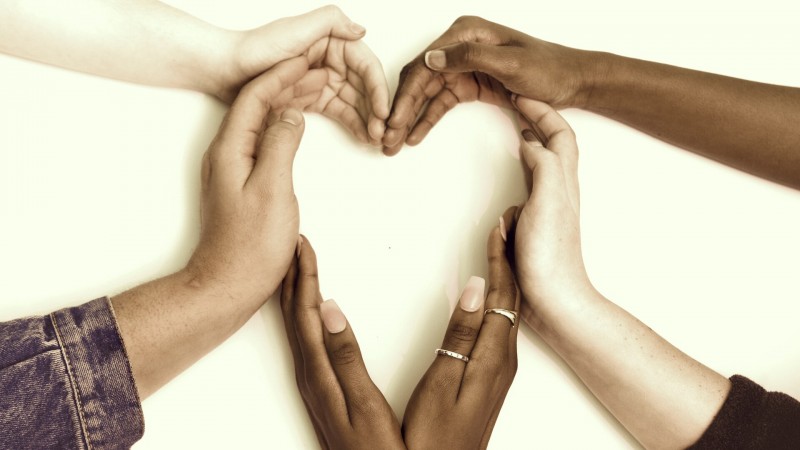Mark Johnson | November 12, 2020
American psychologist Abraham Maslow (1908-1970) is best credited with the line, "If the only tool you have is a hammer, you tend to treat everything as if it were a nail." This saying may also be traced to an earlier variant, equally revealing from lesser-known Abraham Kaplan who said, "Give a small boy a hammer and he will find that everything he encounters needs pounding."
We sure have witnessed a great deal of pounding going on these past few months and we can't pretend it hasn't left a mark. We still continue to live with the aftershocks of this acrimonious political season. Our country is divided like never before. Yet, by developing new skills and by using different tools in our toolbox, we can discover better and more helpful alternatives.
This is the hope offered by a new project to teach de-escalation tactics to faith leaders, community organizers, and local election officials, especially through forms of peaceful political resistance. Launching this program Rev. Traci Blackmon declares, “When we understand that our source of strength is not in picking up weapons, is not in returning evil for evil or hatred for hatred, but in reaching for deep love, then we are able to transform the world."
This effort began as a joint initiative coordinated by Faith in Public Life, Bend the Arc, and the United Church of Christ. You can read more about it in this Nov. 2 article from sojo.net.
Their work might inspire you to improve your de-escalation skill set, whether you are standing up for the powerless, leading a group, or just talking to a friend, neighbor, or family member who seems to feed a persistent need to fight with you on every issue. This group has developed different resources including a virtual training session that is available to watch for free online. Let me caution, if you are looking for help in personal relationships, you will need to translate the principles for this application from the video that mainly discusses protest actions in the public square. Watching it is still a worthy use of your time, and will offer you hope in how positive social engagement can bring about necessary change.
Overall, I hope you will begin thinking and praying about the advance of empathy as a communal and church value. As we anticipate a post-Covid world, we can begin to prepare for a new way to emerge from the cocoons of our necessary social distancing. We can begin to see conflict not as a threat, but as an opportunity. We can choose not to be motivated by fear but called together in love working as one community and inspiring our imaginations to engage non-violently, and positively with active love and deep compassion to our neighbors.
As Baptists who are proud of our historic principles, we honor the value and wisdom of respecting the "liberty of conscience." Freedom demands our attempt to honor the opinion of others, even those we find objectionable. The complexity of today's conflicts makes this tricky business. Some opinions have become more than mere thoughts or theories and have caused incredible harm to others. Passive inaction will not make "all of the hatred" simply go away. We need new ideas, new possibilities and new partnerships. We certainly need more than just our favorite hammer.
I am reminded of Will Campbell, a courageous Baptist activist who ministered during the civil rights era of the 1950s and 60s in the south. He not only stood proudly in solidarity with African-American leaders in advocating their rights but also visited Ku-Klux-Klan members in prison who were violently opposing them. He reasoned white southern rednecks were just as victimized by the widespread scourge of racism as those they attacked.
If we can root our opposition not in hatred, but in developing a new skill-set for de-escalation, we might be better equipped to allow our words to be laced with both strength and peace. In the process, we might even help in the saving of our souls and the healing of our land.
Comments
As a Baptist church affirming the liberty of conscience, we recognize each individual's right to his or her own opinion and welcome your comments, positive or negative. We strive for communication that invites a respectful and personal exchange of opinions and thoughts. This is often not possible through running dialogues in our comment section. To respect the dignity of all persons, we may delete comments that contain profanity, hate speech, or threatening language.
There are no comments



